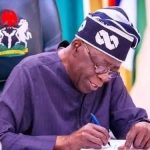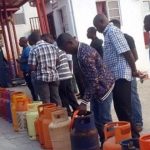The Emir of Kano and former Governor of the Central Bank of Nigeria (CBN), Muhammadu Sanusi II, has faulted the federal government’s food importation policy, warning that it is crippling local agricultural production and threatening food security.
Sanusi, who spoke in an interview with News Central on Tuesday, said while he supports about 80 percent of President Bola Tinubu’s economic direction, the decision to import food to curb inflation is counterproductive and detrimental to Nigerian farmers.
“I know the decision to import food was meant to bring down prices, but it is counterproductive. It discourages local producers and weakens the domestic value chain,” he said.
The Emir explained that relying on importation could erode the gains made in agricultural reforms and make the nation more dependent on foreign markets. He urged the federal government to prioritise local production and strengthen the agricultural value chain to boost productivity and ensure food security.
“Hopefully, we will get back on track with reforms in the agricultural sector — fixing the value chain and relying on domestic production to feed the nation,” he added.
Speaking on the broader economic outlook, Sanusi commended the Tinubu administration for stabilising the economy through improved coordination of fiscal and monetary policies.
“In terms of monetary policy and stability, I have nothing but commendation for the government,” he said. “On the fiscal side, we have seen improvements in revenue-to-GDP ratios, debt service ratios, and a reduction in budget deficits. These are positive steps, but there’s still a long way to go.”
However, the former CBN governor expressed concern over rising government expenditure and the high cost of governance.
“I would like to see a closer look at fiscal expenditure. We’re still spending too much on governance — too many political appointees, too many officers,” he said. “If we don’t improve the quality of spending and put a rein on expenditure, we will continue borrowing.”
Sanusi warned that Nigeria risks slipping back into a debt trap if the government fails to manage savings from subsidy removal prudently.
“After saving money from these expensive subsidies and building up the government balance sheet, if you go back to spending recklessly, you’ll end up borrowing again,” he cautioned.
Despite his reservations, the Emir commended the administration’s efforts, noting that the overall policy direction remains largely positive.
“All in all, I would say 70 to 80 percent of what the government has done and the direction it is going, I support,” he said. “I only have reservations about food importation and the quality of expenditure, but overall, we’re moving in the right direction.”





